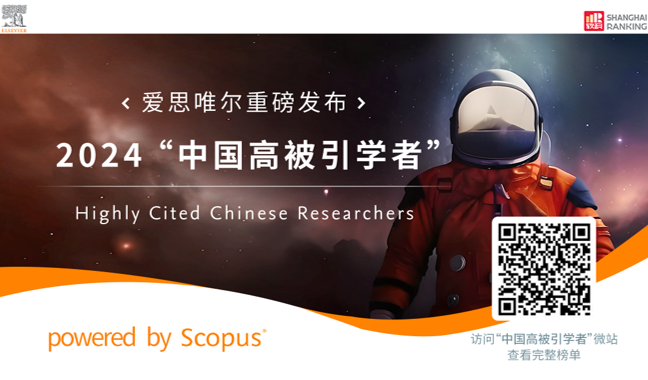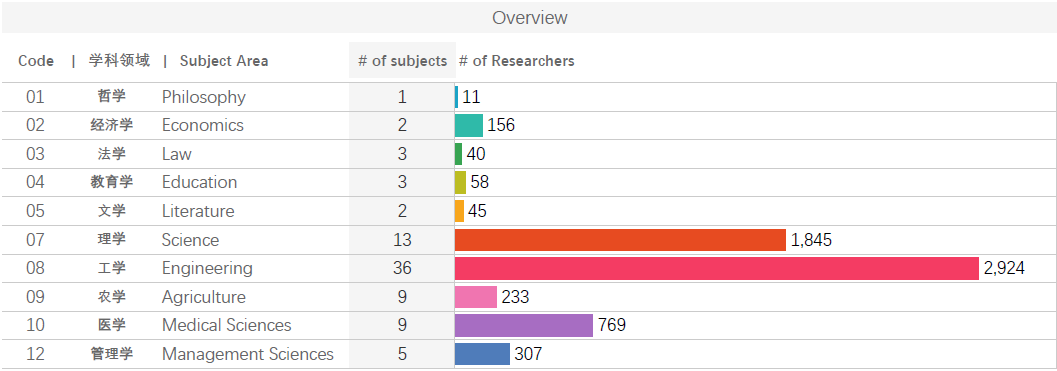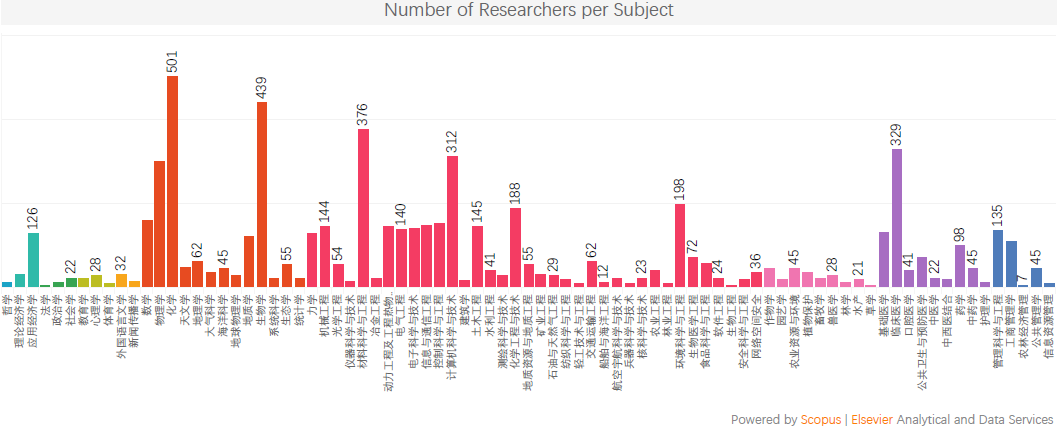
On March 25, 2025, Elsevier released the 2024 Highly Cited Chinese Researchers list, featuring a total of 6,388 scholars from 547 universities, enterprises, and research institutions. The list spans 10 academic disciplines designated by China’s Ministry of Education and covers 83 first-level disciplines.


This year’s rankings are based on an optimized and updated mapping of Elsevier’s classification system to the Ministry of Education’s first-level disciplines, now encompassing 111 subject areas. This refinement provides a more systematic and intuitive presentation of Chinese scholars’ disciplinary affiliations and research impact. Notably, the categorization includes 36 subfields within engineering, 13 within science, and 9 each within medical and agricultural sciences. These improvements have also brought greater visibility to scholars excelling in specialized fields with distinct regional characteristics in China.

A total of 12 distinguished scholars from Peking University Shenzhen Graduate School (PKUSZ) have been recognized this year (listed in no particular order):
• Chemistry: Academician Zhang Jin, Professor Peng Hailin
• Mechanics: Professor Tan Wenchang
• Materials Science and Engineering: Professor Pan Feng, Professor Zou Ruqiang
• Geography: Professor Zhao Pengjun
• Electronic Science and Technology: Professor Yang Yuchao, Professor Zhang Shengdong
• Information and Communication Engineering: Professor Song Lingyang
• Computer Science and Technology: Professor Chen Yuqian
• Applied Economics: Professor Chia-Shang J. Chu
• Environmental Science and Engineering: Academician Ni Jinren
This year marks a record-high number of PKUSZ scholars recognized on the list. Their research is deeply aligned with key technological fields critical to Shenzhen’s “20+8” industrial clusters, including networks and communications, semiconductors and integrated circuits, artificial intelligence, new energy, safety and environmental protection, and cutting-edge new materials. Their contributions continue to strengthen Peking University’s role in advancing technological innovation in the Guangdong-Hong Kong-Macao Greater Bay Area.